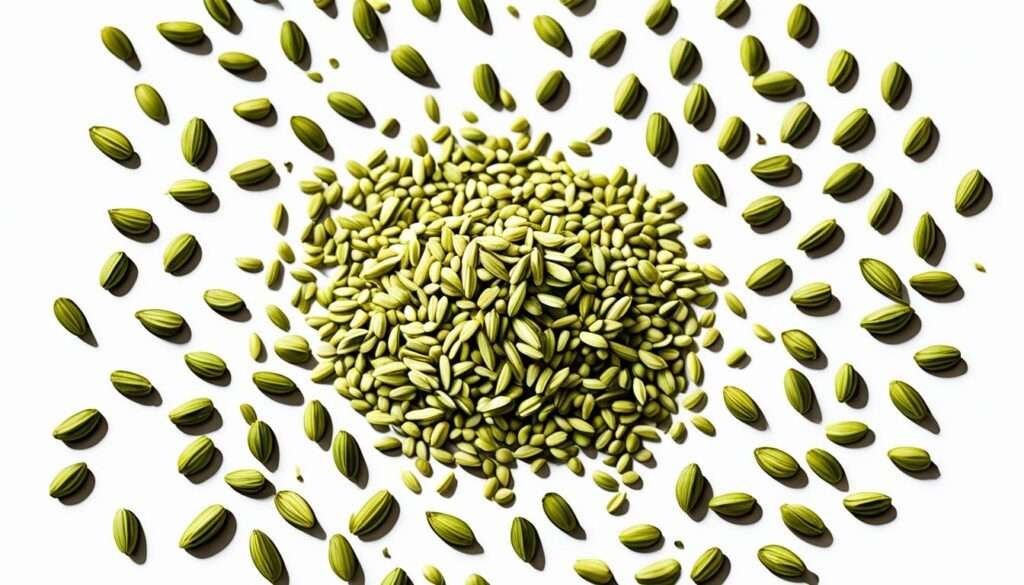|
Getting your Trinity Audio player ready...
|
Acid reflux, also known as gastroesophageal reflux disease (GERD), affects millions globally. It happens when stomach acid moves back into the esophagus. This can cause heartburn, chest pain, and trouble swallowing.
Table of Contents
ToggleMany people choose natural home remedies over medicines. This article will cover the best home remedies for acid reflux.
We’ll look at baking soda, apple cider vinegar, ginger tea, and aloe vera juice. These natural solutions can ease acid reflux symptoms. We’ll also talk about lifestyle changes like avoiding certain foods, losing weight, and quitting smoking and alcohol.
By trying these home remedies and changing your daily habits, you can manage acid reflux better. This can improve your digestion and overall health.
What is Acid Reflux?
Acid reflux is a common issue where stomach acid flows back up into the esophagus. This happens when the muscle between the stomach and esophagus doesn’t work right. It’s important to know what is acid reflux and why it happens to manage it well.
Causes and Symptoms of Acid Reflux
Things like an unhealthy diet, being overweight, pregnancy, and some medicines can cause acid reflux. If the muscle at the top of the stomach doesn’t work right, you might get symptoms like heartburn, regurgitation, trouble swallowing, a chronic cough, and changes in your voice. Knowing what causes acid reflux and its symptoms helps fight gastroesophageal reflux disease.

By spotting the triggers and fixing the causes, people can better manage acid reflux. This helps reduce its bad effects.
Home Remedies for Acid Reflux Relief
Dealing with acid reflux can be tough, but there are simple home remedies that work well. Baking soda and apple cider vinegar are two popular natural solutions for acid reflux.
Baking Soda and Water
Baking soda, or sodium bicarbonate, is a simple yet effective remedy for acid reflux. It neutralizes stomach acid, easing heartburn and indigestion symptoms. Mix a teaspoon of baking soda with water to drink. This can quickly ease acid reflux discomfort.
Apple Cider Vinegar
Apple cider vinegar is another natural remedy for acid reflux. It may seem odd, but it actually helps with digestion and reduces acid reflux. Mix a tablespoon of apple cider vinegar with water before meals. This can help prevent acid reflux.
If acid reflux persists or gets worse, always talk to a healthcare professional. They can offer personalized advice and help you find the best solution for your situation.

Ginger Tea for Acid Reflux
If you’re dealing with acid reflux, ginger tea could be your solution. Ginger is a natural anti-inflammatory that soothes the esophageal lining. It can reduce acid reflux symptoms. Adding ginger tea to your routine is a great way to manage this digestive issue at home.
Making ginger tea is easy. Just grate a small piece of fresh ginger, like the size of your thumb, and steep it in hot water for 5-10 minutes. After it infuses, strain the tea and enjoy. The warmth and anti-inflammatory properties of ginger calm the digestive system and prevent acid reflux.

Ginger also has other benefits besides helping with acid reflux. It aids digestion, reduces inflammation, and boosts the immune system. By drinking ginger tea for acid reflux daily, you can naturally manage this condition.
So, when acid reflux starts, try a warm cup of ginger tea. Its soothing effects and ability to using ginger for acid reflux make it a simple yet effective remedy.
Aloe Vera Juice
If you’re dealing with acid reflux, think about adding aloe vera juice to your daily routine. Aloe vera is known for its soothing and anti-inflammatory effects. These can ease the discomfort of acid reflux.
The Benefits of Aloe Vera for Acid Reflux
Aloe vera juice can lessen inflammation in the esophagus and aid in healing. Its cooling effects soothe the digestive tract’s lining. This brings relief from the burning and discomfort of acid reflux.
Studies indicate that aloe vera juice can effectively manage acid reflux symptoms. These include heartburn, regurgitation, and difficulty swallowing. Its antioxidants and antimicrobial properties protect the esophageal lining from further damage.
Using Aloe Vera for Acid Reflux
To use aloe vera for acid reflux, pick a pure, organic juice. Drink about 1/2 cup 20-30 minutes before meals. This can lessen stomach acid production and prevent it from flowing back into the esophagus.
- Choose a high-quality, preservative-free aloe vera juice
- Drink 1/2 cup of aloe vera juice 20-30 minutes before meals
- Consume the juice regularly to help manage acid reflux symptoms
While aloe vera juice is a natural remedy, always talk to your healthcare provider. This is especially true if you’re on medications or have other health issues.

Fennel Seeds
If you’re dealing with acid reflux, fennel seeds could be the answer. These seeds have been used for years to help with digestion and ease acid reflux symptoms.
Fennel seeds have compounds that relax the muscle between the stomach and esophagus. This stops stomach acid from flowing back up, reducing acid reflux.
To use fennel seeds for acid reflux, try these methods:
- Chew on a teaspoon of fennel seeds after meals. This helps make more saliva, which can neutralize stomach acid.
- Make a tea by steeping fennel seeds in hot water. Drink it all day to calm your stomach.
- Add fennel seeds to soups, stews, or roasted veggies to get their anti-reflux benefits.
Adding fennel seeds to your daily life can help with acid reflux. You can chew on them or make tea. The benefits of fennel seeds for acid reflux are proven and worth trying.

Chewing Gum
If you’re struggling with acid reflux symptoms, chewing gum might surprise you as a helpful remedy. Chewing gum can ease your discomfort and help manage acid reflux.
Benefits of Chewing Gum for Acid Reflux
Chewing gum boosts saliva production, which helps neutralize acid naturally. It also encourages you to swallow more, clearing your esophagus of acid. This action sends the acid back to your stomach where it should be.
Choosing sugar-free gum is key for chewing gum for acid reflux. It avoids adding more acid from sugar. Opt for mint or cinnamon flavors for their soothing effects on your esophagus.
Adding chewing gum to manage acid reflux to your daily routine is easy and natural. It can ease symptoms like heartburn, regurgitation, and swallowing problems. With other home remedies, the benefits of chewing gum for acid reflux can significantly improve your digestion.

Avoid Trigger Foods
Some foods and drinks can make acid reflux worse. It’s important to know and avoid your trigger foods to manage acid reflux naturally. Foods like spicy, fried, and fatty ones, citrus fruits, tomatoes, coffee, and alcohol are common culprits.
Keep a food diary to find your trigger foods. Write down what you eat and drink, and note any reflux symptoms. Over time, you’ll see patterns that help you make changes for acid reflux relief.
Here are some of the top acid reflux trigger foods to avoid:
- Spicy and fried foods
- Citrus fruits like oranges, lemons, and grapefruits
- Tomatoes and tomato-based products
- Caffeinated drinks, including coffee, tea, and soda
- Alcoholic beverages
- Chocolate
- Mint
- Onions
- Garlic
By making smart dietary changes for acid reflux, you can reduce how often and how bad your reflux gets. Try different foods and see how your body reacts. With some trial and error, you can find out which foods to avoid with acid reflux and feel better.
Lose Weight
If you’re dealing with acid reflux, losing weight can really help. Carrying extra weight puts pressure on your stomach, pushing stomach contents back up into your esophagus. This makes acid reflux worse. Losing just a few pounds can ease the discomfort of acid reflux.
To keep a healthy weight, eat a balanced diet and exercise regularly. Eat foods that are good for your stomach, like fruits, veggies, whole grains, and lean meats. Stay away from spicy, fried, or high-fat foods that can make acid reflux worse.
Exercise is also key for managing your weight and acid reflux. Try to do at least 30 minutes of moderate exercise, like walking or swimming, most days. This strengthens your core, reduces stomach pressure, and helps with digestion.
Keeping a healthy weight is crucial for managing acid reflux. By changing your lifestyle and focusing on losing weight, you can control your acid reflux symptoms. This will also boost your overall health.

Quit Smoking and Alcohol
Stopping smoking and drinking less can really help with acid reflux. Smoking and drinking can make acid reflux worse by harming the muscle that keeps stomach acid down. This muscle is called the lower esophageal sphincter.
Impact of Smoking and Alcohol on Acid Reflux
Smoking can make this muscle weaker, letting stomach acid go back up. Drinking alcohol can also relax this muscle and irritate the esophagus. By quitting smoking for acid reflux and avoiding alcohol, you can lessen the harm these habits cause.
- Smoking weakens the lower esophageal sphincter, allowing stomach acid to flow back up.
- Alcohol can relax the sphincter muscle and directly irritate the esophageal lining.
- How smoking and alcohol affect acid reflux can be significant, so it’s important to make lifestyle changes to manage the condition.
By quitting smoking and drinking less, you can better manage your acid reflux. This is a key step in taking care of your digestive health and feeling better overall.
Elevate Your Head While Sleeping
Raising your head while sleeping is a great way to fight acid reflux. Gravity helps keep stomach acid from flowing back up into the esophagus when you’re lying down. This simple trick can make a big difference.
To start, try lifting the head of your bed by 6 to 8 inches. You can use blocks under the bed posts or a wedge pillow. This position keeps stomach acid down and lowers the risk of reflux at night.
Choosing the right sleeping position is key in managing acid reflux. Elevating your head makes it tough for acid to move back up into your esophagus. This can ease acid reflux symptoms.
It’s easy to elevate your bed for better sleep and acid reflux relief. This home remedy can greatly help in managing your symptoms and stopping flare-ups at night.
Home Remedies for Acid Reflux
If you’re looking for natural ways to handle acid reflux, you’ve come to the right spot. Home remedies like baking soda, apple cider vinegar, and ginger tea work well. But, there are more natural ways to ease your discomfort.
Honey is a simple yet effective remedy. It soothes the esophagus, reducing inflammation and easing acid reflux pain. Adding honey to your daily routine can be tasty and helpful.
Probiotics are great for your gut and acid reflux. They help with digestion and improve digestive health. This can lessen acid reflux episodes.
Relaxation techniques are also key. Deep breathing or meditation can ease stress and tension. This can help reduce acid reflux symptoms.
While these natural remedies work well, see a doctor if your acid reflux doesn’t get better. They can create a plan to address the underlying causes.
Using these home remedies daily can help you manage acid reflux better. Try different natural solutions to see what works for you.
Over-the-Counter Medications
OTC medications can be a big help when you’re dealing with acid reflux. They let you find relief without needing a doctor’s prescription. This makes them a convenient choice for many people.
Common OTC options include antacids, H2 blockers, and proton pump inhibitors (PPIs). Antacids like Tums or Rolaids quickly neutralize stomach acid for fast relief. H2 blockers, such as Pepcid or Zantac, cut down on stomach acid production. PPIs, including Prilosec or Nexium, help heal the esophageal lining and prevent damage.
When picking an OTC acid reflux medicine, always read the label and follow the dosage directions. These medicines are usually safe for short-term use. But using them too much or for too long can cause side effects. If your symptoms don’t get better or get worse, talk to your doctor.
Remember, OTC meds can help, but they don’t fix the root cause of acid reflux. Making lifestyle changes can also help a lot. Try to keep a healthy weight, avoid certain foods, and manage stress to better manage your acid reflux.
When to See a Doctor
If you have mild to moderate acid reflux, home remedies and lifestyle changes might help. But, if your symptoms don’t get better or get worse, you should see a doctor. Severe or frequent acid reflux could mean you have a serious condition like gastroesophageal reflux disease (GERD). A healthcare professional should check it out.
Here are signs you should see a doctor for acid reflux:
- Difficulty swallowing
- Unexplained weight loss
- Chronic cough
- Chest pain that doesn’t improve with home remedies
If you have severe acid reflux symptoms or it’s affecting your daily life, talk to your doctor. They can figure out why you have acid reflux and suggest the right treatment.
If you’re not sure when to get medical help for acid reflux, don’t wait. Your doctor can give you a full check-up and create a plan just for you. This can help prevent more problems.
Conclusion
Acid reflux is a common issue that can be handled with home remedies and lifestyle changes. Using natural options like baking soda, apple cider vinegar, ginger, and aloe vera can help. Also, changing your diet, sleeping habits, and health habits can make a big difference.
While home remedies for acid reflux can help, it’s key to see a healthcare provider if your symptoms don’t get better or get worse. They can give you the right medical treatment for your digestive health.
The main points for dealing with acid reflux are to act early, try different home remedies, and make healthy lifestyle changes. With the right steps, you can manage your acid reflux and live a better life.
FAQ
What is acid reflux?
Acid reflux, also known as gastroesophageal reflux disease (GERD), is a common digestive issue. It happens when stomach acid flows back into the esophagus. This can cause heartburn, chest pain, and trouble swallowing.
What are the common symptoms of acid reflux?
Symptoms of acid reflux include heartburn, regurgitation, and trouble swallowing. You might also experience a chronic cough and changes in your voice.
What causes acid reflux?
Acid reflux happens when the muscle at the top of the stomach relaxes too much. This lets stomach acid flow back up. Factors like an unhealthy diet, being overweight, pregnancy, or certain medicines can cause this.
How can baking soda help with acid reflux?
Baking soda, or sodium bicarbonate, can neutralize stomach acid and ease heartburn. Mix a teaspoon of it with water and drink it.
How can apple cider vinegar help with acid reflux?
Apple cider vinegar can improve digestion and lessen acid reflux. Mix a tablespoon of it with water before meals.
How can ginger help with acid reflux?
Ginger is anti-inflammatory and can soothe the esophagus. Drinking ginger tea can help with acid reflux symptoms.
How can aloe vera help with acid reflux?
Aloe vera soothes and reduces inflammation, which can help with acid reflux. Drinking aloe vera juice can ease inflammation in the esophagus and aid healing.
How can fennel seeds help with acid reflux?
Fennel seeds have been used for centuries to help digestion and reduce acid reflux symptoms. They can relax the esophageal sphincter and prevent acid reflux.
How can chewing gum help with acid reflux?
Chewing gum can help with acid reflux. It increases saliva production, which can neutralize stomach acid and push it back down into the stomach.
What foods and drinks should I avoid to manage acid reflux?
Avoid spicy, fried, and fatty foods, citrus fruits, tomatoes, coffee, and alcohol. These can make acid reflux worse.
How can losing weight help with acid reflux?
Being overweight can put pressure on the stomach, causing acid reflux. Losing a few pounds can greatly improve acid reflux symptoms.
How can quitting smoking and limiting alcohol help with acid reflux?
Smoking weakens the muscle that keeps stomach acid down, while alcohol irritates the esophagus. Quitting smoking and drinking less can help manage acid reflux.
How can elevating the head of your bed help with acid reflux?
Lying down can make acid reflux worse because gravity lets stomach acid flow back up. Raising the head of your bed by 6 to 8 inches can help keep stomach acid down at night.
When should I see a doctor for acid reflux?
See a doctor if your acid reflux doesn’t get better or gets worse, or if you have trouble swallowing, lose weight without trying, have a chronic cough, or chest pain. Severe or frequent acid reflux could be a sign of a serious issue and needs a doctor’s check-up.
Source Links

Dr. Nivedita Pandey
Dr Nivedita Pandey is a Gastroenterologist in Delhi, Trained in the U.S and provides pre transplant evaluation as well as post-liver transplant care. She is compassionate and caring and is most well known for being a patient listener and spending ample time with patients.
Related Blog Posts
Ways To Relieve Acid Reflux
March 29, 2025
7 Foods to Avoid With Acid Reflux and IBS
March 29, 2025
Effective Acid Reflux Cough Home Remedy
October 23, 2024
Silent Acid Reflux: Symptoms, Causes, and Solutions
October 7, 2024





